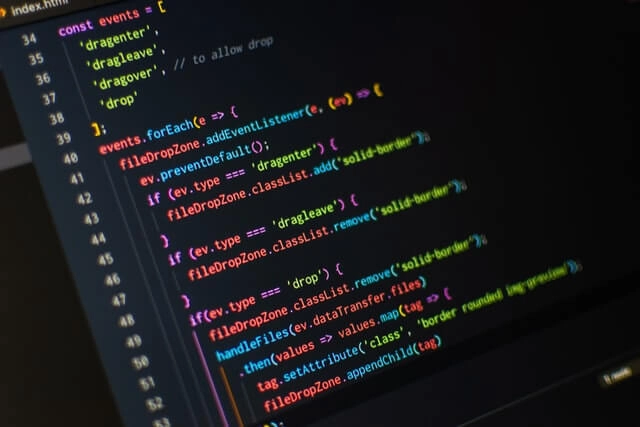The comparison between the different ways of getting into tech is one of the most discussed topics of all time. Some are for the idea that one specific option is best compared to the others. 2020 has given us a fair share of setbacks, inclusive of the pandemic, which is why I thought it was better to go back to this topic and look further into it. After reading this, you’ll have a different opinion about this topic because we’ll have looked at the dimensions in which it’s usually discussed from other perspectives.
. . .
1. Accessibility
It doesn’t require much to start your development career. For a self-taught route, the only things you need are a computer, your time, and an internet connection. Getting into a Bootcamp requires you to pass an assessment test for your skills in programming. Some will even send you what you need to know before going forward with your application. The most inaccessible route is getting a CS degree because you need to have some qualifications from your high school or other institution to apply.
. . .
2. Price
As a self-taught developer, I’d say the self-taught route is the cheapest. There are a plethora of free websites, courses, and books on the internet to get your feet wet with any technology out there. If that’s not enough and you need specific direction or structure, there are a lot of paid courses where instructors take you on a journey from beginner to whatever stage you want to be. The highest you might end up paying maybe a couple of hundred dollars for the paid, guided courses.
The Bootcamp route is not as cheap because you will have that instructor-student physical relationship. It is less expensive than going for the CS degree. The best part about paying for a Bootcamp is that they have different payment options. You can pay nothing upfront if you go with the deferred tuition modal or income-shared agreement model. You can also pay for everything upfront, which might cost something like $15k-$20k. If you look at the CS degree route, you’ll end up paying more than $40k a year even with government support and all.
. . .
3. Relevance
Starting with the self-taught route, you’ll notice that you’ll only have to learn the most useful targeted material to get you ready for the market. The only issue is that most beginners never know where to begin, which is why they end up confused when it comes to deciding what to do. If I were to prepare a course outline for my younger self with all the information I currently possess, I’d go with the most targeted approach. I’d be clinical about what to learn amidst the chaos.
Bootcamps are best when it comes to this attribute because they are a controlled environment. Yes, they may teach you a little bit of what you will not use, but they will ensure structure. In a Bootcamp, you get to dive in and get your hands dirty with modern technology and proper direction in case you ever get lost in the noise. A CS degree is by far the most bloated way of learning a particular discipline. I know software developers out there who say there are some things they wished they never wasted their time with because they have never used them anywhere in their career. I am in no way bashing the CS degree route, but in comparison to the other two, you will have to learn some units that you are never going to apply in your career.
. . .
4. Difficulty and Support
I believe you are going to agree with me when I say that teaching yourself how to become a developer is the hardest thing to do. It is not impossible. It is just hard. As a beginner, you will not know where to begin. You are going to need a lot of discipline, commitment, and determination. The estimated time of completion might be longer. You might get lazy at some point, lack motivation, or experience the impostor syndrome. The only support you will have is forums, and thank God for Stack Overflow, am I right?
Bootcamps are a bit easier to go through when it comes to this because you have structure, deadlines, and instructors checking up on your progress. The only hard part about a Bootcamp is that you are required to go through the whole experience in just six months or less depending on the Bootcamp attended. If you have some development before joining a Bootcamp, you have a better chance of shining. A CS degree route is the easiest to go through because you have enough time to catch up and polish on your weaknesses. You might have support from your instructors, but this largely depends on the institution and your instructor’s availability.
. . .
5. Speed
The speed in learning goes hand in hand with the relevance concept. If you choose to learn targeted material, you’ll end up learning faster within a short time, which is where the self-taught route shines the most. Assuming you have done proper research, have a clear sight of the path you want to take in development, and all the material you need to get started, you can finish your course in a short time with the necessary skills for the market. Your speed in a Bootcamp will largely depend on how long the Bootcamp is supposed to take. You might finish faster if you knew a little bit of development before getting into one. A CS degree takes the longest time to complete. A typical CS course takes four years.
. . .
6. Opportunity
I believe for most people, the possibility of getting hired is a crucial determinant. Here is why. If you choose to go with the self-taught route, you have to prove yourself to your employers. At this point, you don’t have any credentials to your name, you don’t have a lot of people in your network, and 99% of the freelance jobs you get will be dependent on referrals together with a well-built portfolio.
With a Bootcamp, it is easier to get hired. Some Bootcamps even have companies that have partnered with them to make it easier for their graduates to get into the industry immediately they are through.
With a CS degree, you have a better shot at getting internships or an actual job. The backing of an institution and that piece of paper is enough to get your foot in the door.
. . .
I have a few views of my own about all these. Regardless of the route, you’ll end up putting in a lot of effort. In other words, you’ll end up learning things on your own. I know most self-taught developers and Bootcamp alumni consider a CS degree as a partial waste of time. I do not entirely agree with this because CS starts from the fundamentals of programming and computers with a clear direction compared to self-taught and Bootcamp. Why not take a hybrid approach? Get a clear path through the area of your specialization. Then get into a Bootcamp that offers what you want and get ready to work very hard.
Another important thing to consider is your current life situation. If you cannot afford to pay for a Bootcamp or a CS degree program, the self-taught option is for you. It is also an acceptable choice if you already have a full-time job but fancy going into development. The Bootcamp option is sort of in the middle because you’ll get the most out of it if you have prior knowledge in tech and can’t afford a CS degree. If you are fresh out of high school with nothing to do and a lot of time in your hands, you can go for either the Bootcamp or get yourself into a CS degree program.
All roads will lead to where you want to go. Just choose wisely the path on which you want to start your career.

